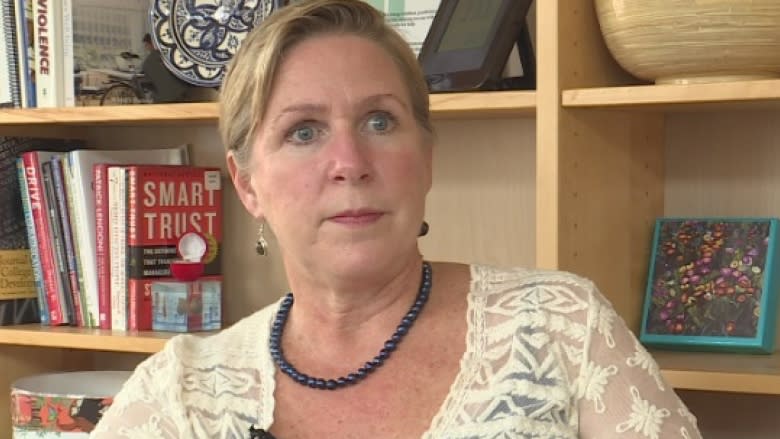McGill University scales back its eating disorder program, fails to tell students
McGill University is slashing resources for its eating disorder program, which has been a recruiting tool and a support network for students struggling with all forms of eating disorders since 2009.
Between 50 and 70 students use the program every year. To date, they haven't been informed the program has changed.
"I think that this is a gap that I take responsibility for, actually," said Martine Gauthier, executive director of McGill Services for Students.
"The messaging should've gone out much sooner," she said, adding the university is in the process of drafting a notice to students.
Staffing levels depleted
At its peak, the program had a co-ordinator, a part-time nurse and nutritionist, a psychiatrist and a psychotherapist. It included group therapy sessions, nutrition counselling and meal planning. McGill boasted about it on its website.
But now, staffing levels are depleted. The co-ordinator position was cut years ago. This year, the nurse chose to leave her position and hasn't been replaced.
The psychotherapist was moved to work elsewhere in the university, and the nutritionist's mandate will be widened to help a variety of students — not just those with eating disorders.
Gauthier said students are being referred to university psychiatrists rather than the EDP if they are diagnosed with an eating disorder. At least one of McGill's psychiatrists is an expert in eating disorders.
Group therapy sessions have also been stopped, she said, but the university's priority is to start them again as soon as possible.
"The main message we want to give is that the supports are still there," she said.
New focus on prevention
Gauthier said the university is in the process of changing the way it administers student health care, saying it will be a more collaborative and preventive approach, more suited to meet the needs of all students, not only those with eating disorders.
The nutritionist, she suggested, might work part-time with student athletic teams.
The administration hasn't decided whether the EDP will keep its name or be rebranded as something different.
Eating disorders prevalent among students
Eating disorders remain a serious problem among the student population, the founder of an eating disorder clinic in Montreal says.
Tania Lemoine said university students are at higher risk of developing eating disorders because of the transition period of leaving home to attend school.
It's common for students to gain the "freshman 15" after moving out of the home, said Lemoine, and a fluctuating body weight, in addition to academic pressure, can trigger an eating disorder.
"It is an age range that we have to be very careful of," she said.
Lemoine said more resources need to be allocated to eating disorders — and not only at McGill.
"I don't think there's enough funding at all. I think that the typical people who have eating disorders are very well contained, smart people, who don't look sick, so they don't get the attention," she said.



